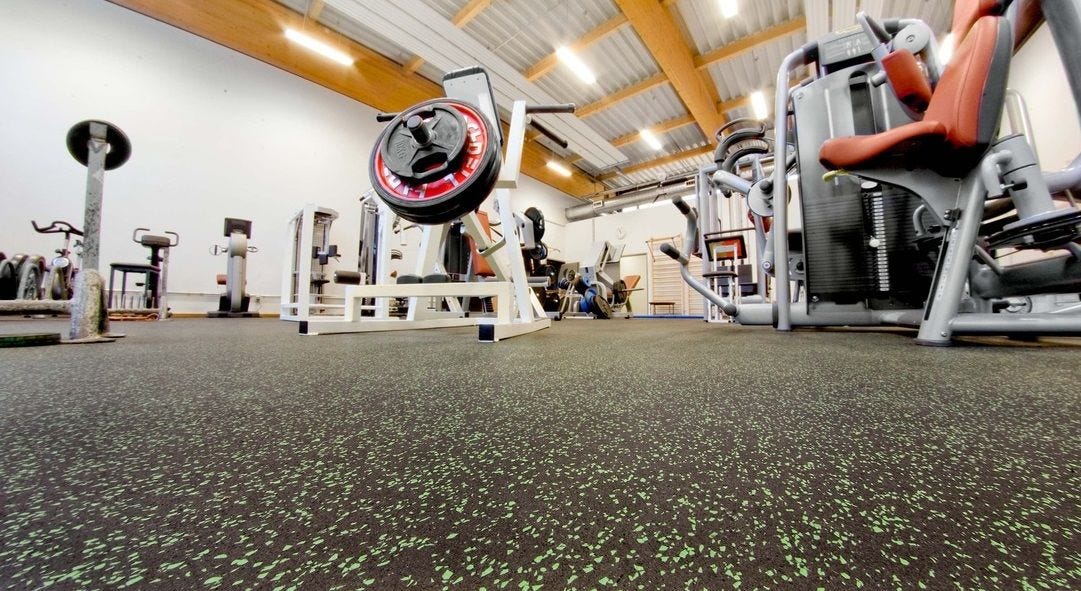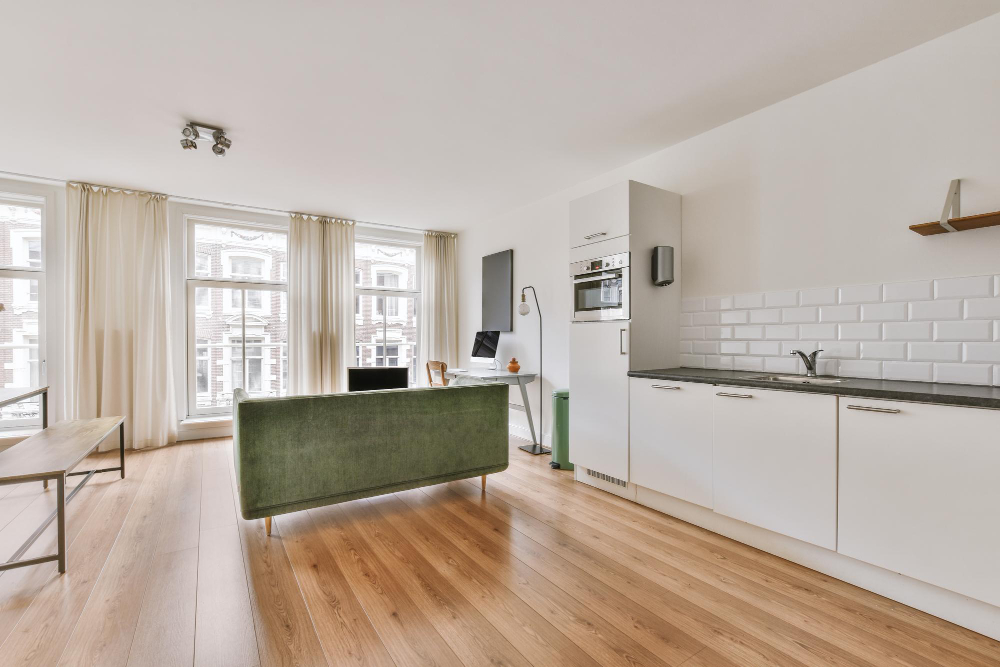Rubber Flooring Dubai: Durable, Versatile, and Eco-Friendly

Rubber flooring has become increasingly popular in Dubai, offering a durable, versatile, and eco-friendly option for various settings. From commercial spaces to residential areas, gyms to playgrounds, rubber flooring provides numerous benefits that make it a preferred choice for many. Let’s delve into the world of rubber flooring and explore its types, benefits, applications, and more.
Introduction to Rubber Flooring
Rubber flooring is a type of resilient flooring made primarily from natural or synthetic rubber materials. It is known for its elasticity, durability, and ability to withstand heavy foot traffic. In Dubai, where the climate can be challenging for traditional flooring materials, rubber flooring offers a reliable solution.
Types of Rubber Flooring
Recycled Rubber Flooring
Made from recycled rubber materials, this type of flooring is environmentally friendly and offers excellent shock absorption.
Synthetic Rubber Flooring
Manufactured using synthetic rubber compounds, this flooring option provides durability and customization possibilities in terms of colors and designs.
Interlocking Rubber Tiles
These tiles are easy to install and provide a seamless, uniform surface suitable for both indoor and outdoor use.
Rubber Gym Flooring
Designed specifically for fitness facilities, rubber gym flooring offers impact resistance, slip resistance, and noise reduction properties.
Outdoor Rubber Flooring
Engineered to withstand exposure to sunlight, rain, and temperature fluctuations, outdoor rubber flooring is ideal for patios, playgrounds, and sports courts.
Benefits of Rubber Flooring
Rubber flooring offers a plethora of benefits, making it a preferred choice for various applications:
- Durability and Resilience: Rubber flooring is highly durable and can withstand heavy use without showing signs of wear and tear.
- Safety and Comfort: Its shock-absorbing properties reduce the risk of injuries from falls, making it ideal for playgrounds and gyms.
- Easy Maintenance: Rubber flooring is easy to clean and requires minimal maintenance, saving both time and effort.
- Versatility in Applications: From commercial buildings to residential homes, rubber flooring can be used in diverse settings due to its adaptability.
Applications of Rubber Flooring
Rubber flooring finds applications in a wide range of settings, including:
- Commercial Spaces: Offices, retail stores, and hospitality venues benefit from the durability and aesthetics of rubber flooring.
- Residential Areas: In homes, rubber flooring provides a comfortable and safe surface for high-traffic areas like kitchens, bathrooms, and playrooms.
- Gyms and Fitness Centers: Rubber gym flooring protects the subfloor from damage caused by heavy equipment and provides a slip-resistant surface for workouts.
- Playgrounds and Recreational Areas: Its shock-absorbing properties make rubber flooring ideal for playgrounds, ensuring the safety of children during play.
- Industrial Settings: Factories and warehouses use rubber flooring to minimize fatigue and enhance safety for workers.
Choosing the Right Rubber Flooring
When selecting rubber flooring, consider the following factors:
- Environment: Assess the specific requirements of the space where the flooring will be installed, such as indoor or outdoor use.
- Thickness and Density: Choose the appropriate thickness and density based on the expected foot traffic and usage intensity.
- Color and Design Options: Explore various color and design options to find the perfect match for your aesthetic preferences.
Installation Process
Installing rubber flooring involves the following steps:
- Preparation of the Subfloor: Ensure that the subfloor is clean, dry, and level before proceeding with the installation.
- Installation Methods: Depending on the type of rubber flooring chosen, installation methods may vary, including glue-down, interlocking, or loose-lay options.
- Maintenance Tips: Regular cleaning and periodic maintenance help preserve the appearance and longevity of rubber flooring, ensuring years of reliable performance.
Cost of Rubber Flooring
The cost of rubber flooring depends on various factors, including the type, thickness, and quality. While rubber flooring may have a higher upfront cost compared to some other flooring options, its durability and longevity make it a cost-effective investment in the long run.
Environmental Impact
Rubber flooring, especially recycled rubber products, has a minimal environmental impact compared to traditional flooring materials. Additionally, some manufacturers offer recycling programs for old rubber flooring, further reducing waste and promoting sustainability.
Top Brands in Dubai
Several reputable brands offer high-quality rubber flooring options in Dubai, catering to diverse needs and preferences. Customer reviews and ratings can help guide your decision when choosing a brand.
Case Studies
Looking at real-life examples of successful rubber flooring installations in Dubai can provide insights into the performance and benefits of this flooring option in various settings.
Future Trends
The future of rubber flooring is bright, with ongoing innovations in technology and materials. Anticipated advancements include enhanced durability, improved sustainability, and innovative design options.
Common Misconceptions
Addressing common misconceptions about rubber flooring can help clarify its benefits and suitability for different environments. From concerns about odor to misconceptions about maintenance, debunking myths can encourage more informed decision-making.
Conclusion
Rubber flooring offers a host of benefits, including durability, safety, and versatility, making it an excellent choice for both residential and commercial settings in Dubai. With its numerous advantages and minimal environmental impact, rubber flooring is poised to remain a popular flooring option for years to come.
FAQs
- How long does rubber flooring last? Rubber flooring can last for many years with proper maintenance, typically ranging from 10 to 20 years depending on usage.
- Can rubber flooring be installed outdoors? Yes, rubber flooring designed for outdoor use is specifically engineered to withstand exposure to the elements, making it suitable for patios, playgrounds, and sports courts.
- Is rubber flooring suitable for kitchens? Rubber flooring is a practical choice for kitchens due to its slip-resistant and easy-to-clean properties, making it ideal for busy cooking areas.
- How do I clean and maintain rubber flooring? Regular sweeping and occasional mopping with a mild detergent solution are usually sufficient to keep rubber flooring clean. Avoid using harsh chemicals or abrasive cleaners to prevent damage.
- Does rubber flooring have any health benefits? Rubber flooring can contribute to a healthier indoor environment by reducing the transmission of impact noise, providing cushioning for joints, and resisting the growth of mold and mildew.










